
Susan Grace Karp, Ph.D. in Bioprocess Engineering and Biotechnology, is an adjunct professor at the Federal University of Paraná in Brazil, with research experiences at Università degli Studi di Napoli Federico II (Naples, Italy) and Lomonosov Moscow State University (Moscow, Russia). She has professional experience in industrial biotechnological processes, especially bio-ethanol and lactic acid production, solid state fermentation, macrofungi, enzyme technologies, and bioeconomy. She has 12 patents, >90 scientific papers and book chapters, 2195 citations and h index of 24.
Dr Anne Bridges received her academic training in Australia and Canada and since then has worked in health care and consumer food products for international companies, including 3M Company (healthcare) and General Mills Inc (grains and cereals food products). More recently, Anne has worked as a consultant for AACCI (now C&G, Cereals & Grains Assn).
When Covid impacted global travel freedom, Anne moved to Australia and continues to work from there with Cereals and Grains Assoc (C&G) technical group, as the Director of Global Scientific Outreach.

PERSONAL DATA
Name Hans Jørgen Lyngs Jørgensen
Work address Department of Plant and Environmental Sciences, Faculty of Science, University of Copenhagen, Thorvaldsensvej 40, DK-1871 Frederiksberg C, Denmark
Tel: (+45) 35 33 37 75
e-mail: hjo@plen.ku.dk
http://plen.ku.dk/english/employees/?id=309882&vis=medarbejder
EDUCATION / ACADEMIC DEGREES
1988 MSc in Agronomy, The Royal Veterinary and Agricultural University, Denmark
1992 PhD in Plant Pathology, The Royal Veterinary and Agricultural University, Denmark
APPOINTMENTS
1988-1989 Scientific Employee at Statens Planteavlsforsøg, Planteværnscentret, Institut for Ukrudtsbekæmpelse, Flakkebjerg
1989-1992 PhD-student at The Royal Veterinary and Agricultural University
1992-1997 Assistant Professor
1998- Associate Professor at Department of Plant and Environmental Sciences, KVL/KU-LIFE/KU-SCIENCE
SCIENTIFIC QUALIFICATIONS
INTERNATIONAL COLLABORATION
Worked in projects related to developing countries since 1995 (see projects under ‘major funding’). Collaboration partners include Can Tho University, Vietnam; University of Mysore, India and Makerere University Uganda. Participation in these projects has resulted in the establishment of a close research collaboration which has continued at a more informal level after official finalisation of the projects.
AWARD/HONOURS
Merit award for researchers who have contributed significantly to development of Can Tho University, Vietnam, to mark the 50th anniversary of University.
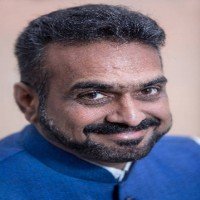
Short Bio- Professor Rajaraman Eri, Associate Dean, RMIT
Raj Eri is a veterinarian turned biomedical scientist who specialises in research investigations into functional foods (dietary fibre), clinical nutrition and gut health. Raj was awarded a master’s degree in Veterinary Medicine (India)followed by his PhD from the University of Queensland in molecular and cell biology in 2001. His subsequent postdoctoral training USA included research work mainly investigating both innate and adaptive immune responses and associated aspects of clinical translation. Between 2006 and 2010, Raj joined UQ-Mater Medical research Institute, Brisbane as a senior research officer where he was involved in ground-breaking work on the pathogenesis of bowel diseases. In late 2010, Raj joined UTAS as an independent investigator developing a research laboratory dedicated to gut health, establishing an international reputation in microbiome and dietary fibre area over a decade(~150 publications; 20+PhD completions; ~3 million grants including NHMRC, Cancer Council and multiple philanthropy grants). On the teaching side, Raj coordinates and teaches in the fields of biosciences, immunology, nutrition and biochemistry. Raj has won multiple teaching awards including the Australian national citation for excellence in teaching in 2017. Raj is currently serving as the Associate Dean at RMIT University, Melbourne specifically leading food science/technology themes.

(i) Dr. Carol Sze Ki LIN (BEng, PhD)
(ii) Academic qualifications
9/2004 – 8/2008 PhD, Department of Chemical Engineering,
The University of Manchester (formerly UMIST), England
3/1995 – 11/1999 Bachelor of Engineering in Chemical and Materials Engineering,
First Class Honours, The University of Auckland, New Zealand
(iii) Previous academic positions held
11/2012 – 6/2017 Assistant Professor in the School of Energy and Environment,
City University of Hong Kong
7/2011 – 10/2012 Visiting Assistant Professor in the School of Energy and Environment, City University of Hong Kong
1/2010 – 6/2011 Visiting Assistant Professor in Bioengineering Program,
The Hong Kong University of Science and Technology (HKUST)
11/2008 – 10/2009 Postdoctoral Researcher, Ghent University, Belgium
(iv) Present academic position
7/2017 – present Associate Professor in the School of Energy and Environment,
City University of Hong Kong
Prizes and Awards
1. Green Chem 2019 Mobility Fund, Ghent University, Belgium
2. BESS Achievement Award 2018, Bioenergy Biorefinery Conference – Southeast Asia 2018 Sustainable Production of Molecules, Bioenergy Society of Singapore (BESS)
3. Golden Medal in Geneva Invention Exhibition 2018 for ITF project titled “Textile Waste Recycling by Biological Method”
4. Golden Medal with Jury’s Commendation in Geneva Invention Exhibition 2016 for ITF project titled “Conversion of food waste into polylactic acid fiber (PLA)”
5. The President’s Awards, City University of Hong Kong 2017
6. RITA Award 2016, The Hong Kong Research Institute of Textile and Appeal (HKRITA)
7. PepisoCo Global R&D Research Forum Award

Milica Pojic (F), PhD, is a Principal Researcher at the Institute of Food Technology, University of Novi Sad, Serbia. Her researchinterests are in the area of new food product development and valorization of food by-products and alternative sustainable rawmaterials of plant origin. She has participated in 10 international and 7 national research projects. Out of these she coordinated and/or has have a leading role in 6 international and one national project.Her researchoutputs include numerous peer-reviewed research publications(n=44), published in top international journals such as Trends in Food Science & Technology (IF=15.3), Food Chemistry (IF=8.8), Critical Reviews in Food Science and Nutrition (IF=10.2)) UltrasonicsSonochemistry (IF=8.4), LWT (IF=6.0), Food Hydrocolloids (IF=10.7), Journal of Functional Foods (IF=6.6), Industrial Crops and Products (IF=5.9) and others; chapters (n=9), conference papers (n=17) and two co-edited book published by Wiley and Elsevier (Source Scopus). She is an editorial board memberof two scientific journals: Food and Feed Research (published by FINS) and Discover Food (published by Springer).

Professor Prakash Kumar’s early education was from India, and PhD (1988) from the University of Calgary, Canada under the Supervision of Prof Trevor Thorpe. He joined the National University of Singapore (NUS) in 1989, where he is a full professor at the Department of Biological Sciences.
He has held many senior administrative positions at NUS, and is currently Director of the Research Centre on Sustainable Urban Farming (SUrF) at NUS.He is a prominent scientist in the fields of plant molecular developmental biology and biotechnology. He has trained 30 PhD and 7 MSc students in his lab at NUS so far. He is Editor of three international journals (Plant Cell Reports, BMC Plant Biology, Plant Biotechnology Reports). Several of his 121 scientific papers are published in prestigious journals.
His research focus is on hormonal regulation of plant development. In addition, work on molecular regulation of plant salinity tolerance is currently ongoing. As part of this, his group studies how mangrove tree species have adapted to live in high salinity environment. In the recent past his lab successfully completed a major rice research program in collaboration with TLL Singapore and IRRI Philippines. He serves on several National and International committees, including, as the Chair of the Genetic Modification Advisory Committee, Singapore. He is Singapore’s National Correspondent for the International Association for Plant Biotechnology.
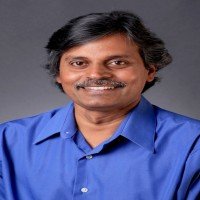
Dr. Raj Boopathy is an Alcee Fortier Distinguished Service Professor of biological sciences at the Nicholls State University, USA. He received the Jerry Ledet Foundation Endowed Professorship in Environmental Biology in 2002 and John Brady Endowed Professorship in 2012. In 2008, Dr. Raj Boopathy received the Nicholls State University’s Presidential Award for Teaching Excellence. He has more than 30 years of research experience in the area of bioremediation and bio-processing. His research involves bioremediation of hazardous chemicals including oil spills and explosives, biological treatment of wastewater, antibiotic resistance genes in the environment, and bio-ethanol production. He has published more than 200 research papers in peer- reviewed journals and 22 book chapters. He edited two books. His research work has been cited more than 11,000 times with a h-index of 55 and an i10 index of 155. Dr.Raj Boopathy reviewed research grants for National Science Foundation, Department of Defense, US Environmental Protection Agency, Department of Energy, and numerous private agencies and foreign governments including South Africa, Switzerland, Indonesia, Hong Kong, UK, and Israel. He is the editor of the journal, Bioengineered, Environmental Quality Management, Current Pollution Reports,Applied Nano, and Applied Sciences (Section, Environmental and Sustainable Science and Technology). He also serves as a senior editor of the Journal, Renewable Bioresources and is on the Editorial Boards of various International journals including International Biodeterioration & Biodegradation, Bioresource Technology, and the International Journal of Soil and Sediment Contamination. Dr. Raj Boopathy received Fulbright scholarship and spent six months teaching and conducting research at the Institute of Technology (ITB) in Bandung, Indonesia in 2007. He also received European Union-US biotechnology Fellowship and Leverhulme commonwealth fellowship. He has been elected as a Fellow of various societies including International Union of Pure and Applied Chemistry (IUPAC), Society for Industrial Microbiology and Biotechnology (SIMB) and the International Forum on Bioprocessing (IFBioP). Dr Raj Boopathy was selected as a Fulbright Senior Scholar Specialist to visit various countries for next five years by the US State Department and he recently visited Malaysia and Indonesia as a Fulbright Specialist. Dr. Boopathy received Dr. Waksman Award from SIMB for his contribution in Microbiology Education in 2017. Dr. Boopathy is the recipient of the World Class Professor (WCP) award from the Government of Indonesia. Dr. Boopathy received Lifetime Achievement Award for his contribution to Bioprocessing Research by the International Bioprocessing Association (IBA). Dr. Boopathy recently received the University of Louisiana (UL) System’s Outstanding Faculty Award for the year 2023. Dr. Boopathy is a visiting professor in the Department of Chemical Engineering, Institute of Technology Bandung (ITB) Indonesia.
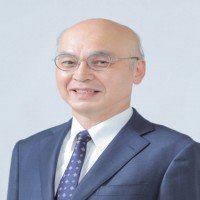
Shotaro Yamaguchi joined Amano in 1984 after receiving a master’s degree in food engineering from the Graduate School of Agriculture, Kyoto University. Since then, he has been engaged in industrial enzymology, fungal genetic engineering, microbial fermentation, and food and medical enzyme applications. He received Ph.D. degree from Kyoto University on lipase in 1991 and spent three years at the Institute of Food Research (UK) from 1999 to 2001. He discovered a novel protein-modifying enzyme, Protein-glutaminase.
He received the following awards: Encouragement Award from Brewing Society of Japan (2003) and Technology Award from Japan Society for Bioscience, Biotechnology, and Agrochemistry (2010).
He is an Editor for Applied Microbiology and Biotechnology. He is a member of Japan Society for Bioscience, Biotechnology, and Agrochemistry, and The Society for Biotechnology, Japan.

Prof. Emmanuel M. Papamichael, graduated (Diploma of Chemistry) from Athens’ Kapodistrian University in 1972, and received his Doctoral degree (PhD) from University of Ioannina (1981). Currently he is Professor Emeritus in the Department of Chemistry (University of Ioannina). His research interests comprise: Kinetics of enzymatic and heterogeneous reactions, Investigation of their mechanisms and development of optimal mathematical models, Isolation and purification of hydrolytic enzymes, Enzyme Biotechnology, Parametric and Non-parametric statistical treatment of experimental data, Experimental design, Error analysis, Computer Programming.
Prof. Papamichael has published 131 original papers (after peer-reviewing) in International Journals, International Books and International Conferences, has received < 1300 citations, and he participates as Editorial Board Member in many ISI Journals. He is also reviewer in more than 100 international Journals, and he was supervisor on < 30 PhD/Master/Diplomas, whereas in the recent 5 years was/is scientific director in three competitive research programs funded by EU.
Dr. Mohan C D working as a Senior Scientist at the CSIR-Indian Institute of Toxicology Research, Lucknow. His research is oriented towards the discovery of small molecule inhibitors against proinflammatory signaling pathways in cancer. Mohan has published 88 research publications in international peer-reviewed journals and has 05 patents. Two of his international patents related to the discovery of inhibitors of BAD protein and trefoil factor 3 have been commercialized. He has authored five book chapters and coinvestigator for several collaborative research projects. He has scientific citations of over 2900 with an h-index of 34, and delivered more than 20 invited talks at national and international conferences. He is the editorial board member of PLoS One and BMC Complementary Medicine and Therapies and a reviewer for over 25 journals. He has been awarded NASI-Young Scientist Platinum Jubilee Award by the National Academy of Sciences, India (NASI) in 2019, Prof. Umakant Sinha memorial award by the Indian Science Congress Association, Kolkata in 2020, PHSS Young Scientist Award by The Prof. H. S. Srivastava Foundation, Lucknow in 2022. Recently, he has been conferred with the Biochimie Article of the Year Award by the French Society for Biochemistry and Molecular Biology (SFBBM) and Elsevier B.V., with a cash prize of €1000. He delivered a lecture at the University of Paris, France at the annual congress of SFBBM France on 4th July 2022. As a token of honor, his travel to and accommodation expenses at Paris were taken care of by the SFBBM, France. He has been listed among the top 2% of World Scientists consecutively for the year 2020 and 2021 in a report published by Stanford University, USA and Elsevier BV. He is the Fellow of the Royal Society of Biology (FRSB), London, and a member of the National Academy of Sciences (MNASc), India.

Dr. Sheelendra Pratap Singh received M. Pharm (Pharmacology) degree from Manipal college of
pharmaceutical sciences , Manipal University, Karnataka. After completing M. Pharm, he worked as a
Scientist at the Metabolism and Pharmacokinetics Division of Dr. Reddy’s Laboratories, Hyderabad. In
year 2007, he joined PhD at Pharmacokinetics and Metabolism Division, Central Drug Research
Institute, Lucknow. In year 2011, he completed Ph.D. and joined the Pharmaceutical Candidate
Optimization Department of Biocon-Bristol Myers Squibb R & D Centre, Bangalore as a Research
Investigator. After more than 2 years of post-PhD industrial experience, he joined as a Scientist (17
January 2014) in the Regulatory Toxicology group at CSIR-Indian Institute of Toxicology Research,
Lucknow. Presently, he is the Principal Scientist and Scientist In-Charge of Toxicokinetics Laboratory
at CSIR-IITR, Lucknow. He is also In-Charge of the NABL facility for “Pesticides residue analysis in low
fat food commodities” and “Proteomics and Metabolomics” facility at CSIR-IITR, Lucknow.
His research group presently working on various integrated approaches used for “Human Health Risk
Assessment” such as toxicokinetics (absorption, distribution metabolism and excretion, ADME)
studies, physiologically based toxicokinetic modeling (PBTK), proteomics analysis for disease
biomarker identification, bio-analytical method development & validation for chemicals exposure
analysis and, pesticides residues & contaminants analysis in food commodities for intake assessment.
He has published more than 75 papers, 5 patents and several book chapters. He is the recipient of
Young Mass Spectrometrist Award by the Indian Society for Mass Spectrometry, the Bristol Myers
Squibb R&D Star award and the Japan Society for the Promotion of Science (JSPS) Fellowship award.
He is a National Accreditation Board for Testing and Calibration Laboratories (NABL) accessor as per
ISO 17025.
He has contributed to the formulation of guidance document of national importance released by
FSSAI, New Delhi:
“Guidance Document & Standard Operating Procedures for fixation of Maximum Residue
Limits (MRLs) of pesticides in food commodities”
“Guidance Document on Risk Assessment of Novel Foods and Food Additives”
He is a member of the Indian National Young Academy of Science, INSA, New Delhi. He is a member
of the Scientific Advisory Committee of CHIFSS (a Confederation of Indian Industry-Hindustan Unilever
Limited Initiative on Food Safety Sciences).
He is a member of several National Scientific Committees.
Bureau of Indian Standards (BIS):
Chemicals Hazards Sectional Committee
Fragrance and Flavour Ingredients Sectional Committee
Environmental Services Sectional Committee
Pesticides Sectional Committee
Food Safety and Standards Authority of India, New Delhi:
Scientific panel on food additives
FAO/WHO:
Expert Member of Joint FAO/WHO Expert committee on Food Additives (JECFA)

Panesar is currently working as Professor & Dean (Planning & Development), Sant Longowal Institute of Engineering and Technology (Deemed to be University: Established by Govt. of India), Longowal, Punjab. Prof. Panesar has more than 26 years of teaching & research experience and also served in administrative positions like Dean (Research & Consultancy), and Head, Department of Food Engineering & Technology, SLIET Longowal. In 2005, he has been awarded BOYSCAST fellowship by Department of Science & Technology (DST), Govt. of India, to carry out advance research at Chembiotech labs, University of Birmingham Research Park, UK. He was also involved in USA & Australian sponsored projects during his stay at UK. In 1999, Prof. Panesar was awarded Young Scientist Fellowship by Punjab State Council for Science & Technology, Punjab.
Prof. Panesar has successfully completed 9 research projects funded by DBT, CSIR, MHRD, AICTE, New Delhi and 01 project are in progress. He has published more than 180 international/national scientific papers, 50 book reviews in peer-reviewed journals, 50 chapters and has authored/edited 10 books. He has supervised 16 Ph.D. students & more than 35 M.Tech students. He is a member of the editorial advisory boards of various national/international journals including International Journal of Biological Macromolecules, Journal of Food Science & Technology, Carbohydrate Polymer Technologies & Applications, Applied Food Biotechnology, Indian Journal of Microbiology.
Prof. Panesar is serving as member of ‘Technical Expert Committee (TEC)’ of ‘Microbial and Natural Sciences’ and Sectoral Expert Committee (SEC) on ‘Functional Foods’ constituted by Department of Biotechnology, Govt. of India. He has served as a member of the Scientific Panel on “Alcoholic Beverages” and Water & Non-alcoholic Beverages” constituted by FSSAI during the year 2018-2022 & currently serving as member Scientific Panel on “Alcoholic Beverages” constituted by FSSAI. Prof Panesar has also acted as Member in the international collective of experts of Foundation for Science and Technology (FCT), Portugal.
In recognition of his work, Prof. Panesar was elected as ‘Fellow 2018’ by The Biotech Research Society of India (BRSI), ‘Fellow 2019’ of ‘National Academy of Dairy Sciences’, ‘Fellow 2021’ by the ‘International Society for Energy, Environment & Sustainability (ISEES)’ and ‘Fellow 2021’ of ‘Academy of Microbiological Sciences’. He has been awarded prestigious ‘INSA Teachers Award (2020)’ by Indian National Science Academy (INSA). Prof. Panesar was also listed consequently three times in the most coveted list (2020, 2021, 2022) of "World Ranking of Top 2% Scientists" published by Stanford University, USA, He has served as the National Vice President of the AFSTI, during 2019. Prof. Panesar is also served as a member of the Board of Studies (BOS) of various universities, such as Central University of Punjab, Punjabi University, Patiala, Punjab Technical University, Jalandhar, HP University, Shimla, Chandigarh University etc.
He is life member of International Forum on Industrial Bioprocesses (IFIBiop), Biotechnology Research Society of India, Association of Microbiologists of India, Association of Food Scientists, Indian Science Congress Association, and Technologists, Indian Society for Technical Education, and Punjab Academy of Sciences. His research is focused in the area of value addition of food industry by products, Prebiotics, functional foods, circular economy, green extraction of bioactives, nanoencapsulation etc. Prof. Panesar has h-index of 46 (Google scholar) and more than 7200 citations. He has also visited several countries like UK, USA, Canada, Switzerland, New Zealand, Australia, Germany, France, Singapore, Malaysia, China, Iran, Thailand etc. under various academic assignments.
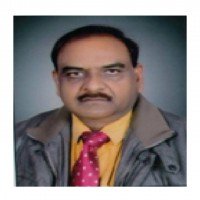
Dr Chauhan obtained his M.Sc. in Dairy Science and Technology and PhD in Dairy Science and Technology. He has supervised more than one dozen of PhD and more than forty M.Sc. (Food Science and Technology) students. DrChauhan joined as Professor (Food Technology) at Banaras Hindu University in 2010. Currently, Dr Chauhan working as Head and Professor (Food Technology) at the Department of Dairy Science and Food Technology, Institute of Agricultural Sciences, Banaras Hindu University and also Director of the Centre of Advanced Faculty Training (CAFT- Food Processing) ICAR, Gov. of India, BHU Centre. Apart from the above all achievements, Dr Chauhan is designated as Chairman, of the Scientific Panel on Fruits &Vegetables and their Products (Including dried fruits and nuts, salt, spices and condiments) FSSAI, Gov. of India and Member, Scientific Committee, FSSAI, Govt. of India. Dr Chauhan is President of AFST(I), Varanasi chapter andVice-Chairman, Indian Dairy Association (Eastern UP Chapter),and a life member of different professional scientific societies. Prof. Chauhan also had been a Member of UP Subordinate Services Selection Commission, Gov. of U.P., Lucknow. Dr Chauhan also had been a visiting scientist atthe University of Copenhagen, Denmark, Wageningen University and PTC+ Oenkerk, The Netherlands. Dr Chauhan alsoacts as achair and co-chair of the Scientific Technical Committee at various International and National conferences inMalaysia, Thailand, Budapest, (Hungry), National University Fiji, etc. He has published more than 100 research papers in different National and Internationally reputed journals and a book on Dairy Technology (Dairy Technology -A Systematic Approach).
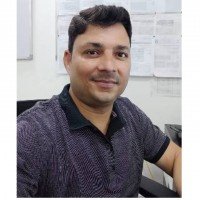
Dr. Sudhir P. Singh is working as a Scientist-D at Center of Innovative and Applied Bioprocessing (A DBT institute), Mohali, India. Currently, the main focus of his research is gene mining, biocatalyst engineering, and enzyme characterization, for the production of high-value rare sugar and functional biomolecules, such as D-allulose, trehalose, turanose, prebiotic oligosaccharides, resistant starch, etc. Dr. Singh has published over 75 research articles, 10 review papers, 09 books, and 10 patents (granted) to his credit. He has been conferred SBS-MKU Genomics Award (BRSI), Young Scientist Award (International Bioprocessing Association), Professor Hira Lal Chakravarty Award (ISCA, DST), and Gandhian Young Technological Innovation Award to the team (SRISTI). He is a member of the National Academy of Science, India (MNASc), and a fellow of the National Academy of Agricultural Sciences, India (FNAAS).
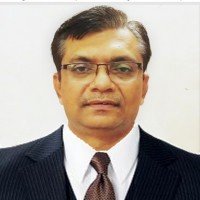
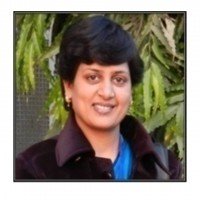
Dr. Aradhana Mishra holds a PhD in Biosciences in 2007 from Rani Durgavati University, Jabalpur, India. Dr. Mishra joined CSIR-National Botanical Research Institute, Lucknow, India, as a senior scientist on January, 2013 at Division of Microbial Technology. Her research work focused on bio-inspired nano-materials synthesis and plant-microbe interaction during abiotic and biotic stresses. She has been awarded for Women Scientist fellowship award, by DST, Govt. of India in 2007 and 2011. Several major research projects have been completed by her. So far, Dr. Mishra has 66 publications in peer-reviewed SCI journals, 15 book chapters and four patents have been granted and two patents have been filled. She has been awarded several times for best research paper by CSIR. She is editor in reputed journals PLoS One, member of editorial advisory board of Plant Physiology and Biochemistry and former editor of other journals, American Journal of Clinical Microbiology and Antimicrobials and Genetics and Molecular Biology Research. She has been Associate editor in “New Era Agriculture Magazine” 2022. In November 2019, she was honored with prestigious Women Scientist Award, 2018 by The Biotech Research Society, India. Besides, that, she has been awarded with Excellence in research Award by Samagra Vikas Welfare Society (SVWS) in 2020. She has also developed three products.
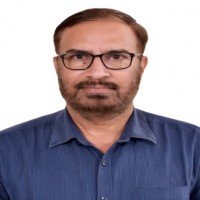
Dr. Puniya made significant contributions to animal sciences by describing two novel genera & species of anaerobic fungi (Oontomyces anksri&Buwchfawromyces eastonii). He is currently working on probiotics to control lifestyle disorders & also on bacteriophages to remove biofilms. Prior to this, he worked as Dean, Dairy Science & Technology at Guru Angad Dev Veterinary & Animal Sciences University, Ludhiana, 2015-19.
Dr. Puniya publishedin peer-reviewed journals (Publications >200, Citations, 5738; h-index, 40; i10-index, 87; edited 03 books)covering a wide range of topics in dairy & rumen microbiology. As Dean, he has demonstrated the scientific leadership & skill in research management by starting new Ph.D. programmes (Dairy Technology/ Microbiology/ Engineering & Livestock Economics); & M.Tech (Dairy Microbiology/ Chemistry); involved in academic reforms & transferring 'International Consultancy/ Technology (South Africa); 'Academia-Industry' programmes through 'Public-Private Partnership' as Chairman. 'Convener BSMA' & 'Member (National Core Group)’ of ICAR for 'Restructuring of Master’s/ Ph.D. Curriculum; Member, Scientific Panel, FSSAI; Member, Sectoral Expert Committee on Biomanufacturing; Functional Foods, DBT; Principal Member, FAD 31 (Food & Agriculture), Sectional Committee, Bureau of Indian Standards& Member, National Advisory Committee, Ministry of Fisheries, Animal Husbandry & Dairying. Besides, he is also Chairman, SCSP & Consultancy Cell; Coordinator, Internal Quality Assurance Committee, Head, Library Services,Member, PME Cell,&Member, ITMCat ICAR-NDRI, Karnal.
Dr. Puniya has won several national & international awards & Honors including the Kritagya - National Krishi Hackathon Award, 2022; DuPont NutriScholars Awards 2020; Dr. Rana Memorial Award, 2019, APSI Award, 2019; BIORESTEC, Elsevier Award, 2018; Certificate of Appreciation, ABRCMS, USA, 2012-14 & 2019; Honorable Mention, American Society for Microbiology, 2010; Tritaya Puruskar, Hindi Alehkh, 2007 & 2008-09; Dr. KK Iya Award, 2006; Prof JV Bhat Award, 2004; Best Scientist Award, 2004; Kautilya Gold Medal, 1999; AMI-Young Scientist Award, 1996 & several Best Papers/ Posters awards. Recipient of International fellowships including DAAD Fellowship, Germany, 1992-93; INSA-Royal Society Fellowship, 2007; DBT-CREST Award, 2013.
Dr. Puniya has also contributed to ‘E-courses’ for ICAR, 'E-PG Pathshala' of UGC, Mobile-App, & MOOC of MHRD. He has been actively involved in ~30 externally funded/ institutional projects as ‘PI/ Co-PI’, member of the editorial boards/ referees of several international journals in the field of agricultural research including Associate Editor(s) of Frontiers in Microbiology/ Veterinary Sciences, & guided several research scholars. He is also a life member of renowned scientific bodies (i.e., AFSTI, AIASA, AMI, ANA, ANSI, APSI, BRSI, DTSI, IDA, ISCA, MBSI, NADSI, PAI, SBC(I)). He Chaired, Technical Session(s)’, ‘Food Microbiology’, BioMicroWorld-2009, Portugal& Rumen Microbiology, ‘ANI-NUE 2012’, Thailand; & participated in DST's Exposure Visit to Scientific Labs/ Institutions in Taiwan'', 2010. He was invited to deliver a talk during ‘13th International Gut Microbiology Symposium’, 2023, UK;presented a paper in Bio-MicroWorld-2007, Spain; 2007,& 8th International Conference of AITVM, Berlin, 1995. He was involved in organizing MicroTech2K4 of AMI; NEAC-2007 & 'ProCooL, 2017. He is a fellow of a number of national academies& scientific societiesFNAAS, FAMSc, FBRS, FNADS & FANSI. He has also contributed to the popularization of science among people through lectures & publications of scientific articles in magazines & national newspapers.

Dr Amit Kumar Rai is Scientist D at the DBT-National Agri-Food Biotechnology Institute, Mohali, Punjab, India. He has served as Scientist at DBT-Institute of Bioresources and Sustainable Development, regional centre, Sikkim, India from 2012 to 2023. His current research focus is on fermented foods, microbial biotransformation, bioactive peptides, and enzymes for production of value-added products. He has completed his doctorate from CSIR-Central Food Technological Research Institute, Mysore on application of lactic acid fermentation for recovery nutraceuticals from fish and animal processing by-products. Dr. Amit has contributed in the area of Food Biotechnology for the production of nutraceuticals and functional foods rich in bioactive peptides and isoflavones using microorganisms associated with traditional fermented foods of North East India. Further he has studied microorganisms associated with high altitude region of Sikkim Himalaya and their potential for production of selected industrially important enzymes. To his credit, he has filed four patents and 114 publications including 82 publications in SCI Journals and Edited/Authored 4 books and author 28 book chapters with >3000 citations. His performance has resulted in the bestowment of the Associate Fellow 2023 from Indian National Science Academy (INSA), Young Scientist Award 2022 from International Bioprocessing Association 2019, Scientist of the year 2020 from National Environment Science Academy, India, Young Scientist Award 2016 from Association of Food Scientists and Technologists (India), Young Scientist Award 2015 by Association of Microbiologist of India, Selected Member of National Academy of Science, India - 2022, AU-CBT Excellence Award 2009 by the Biotech Research Society of India, Award for Excellence in Food Biotechnology 2016 from Society of Applied Biotechnology and several best presentation award at National and International conferences. He has supervised 2 PhD students and serving as Editor/Editorial Board member of several SCI Journals.
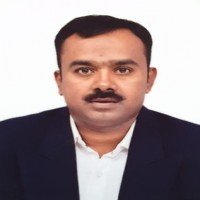
DR. Y. RAJASHEKAR
Scientist-E
Insect Bioresources Laboratory,
Institute of Bioresources and
Sustainable Development, Dept of Biotechnology, Govt. of India,
Takyelpat, Imphal, Manipur, India-795001
E-mail: rajacftri@yahoo.co.in; yrajashekar.ibsd@nic.in
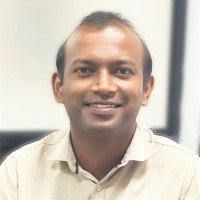
Dr. Jeyan Arthur Moses is a recipient of the prestigious International Union of Food Science and Technology (IUFoST) Young Scientist Award, National Academy of Sciences India (NASI) Young Scientist Platinum Jubilee Award, Association of Food Scientists & Technologists India (AFSTI) Young Scientist Award, Society of Chemical Industry (SCI) - UK Seligman APV Bursary, Dr. V. Subrahmanyan Best Scientist Award, iCFP Young Scientist Award (Bangkok), Science & Engineering Research Board (SERB) Early Career Research Award, TN State Council for Science and Technology’ Travel Grant for Young Scientists and Grant for Dissemination of Innovative Technology, AFSTI Dr. K.R. Bhattacharya Memorial Travel Grant and SERB-ITS Grant.
Dr. Moses completed his B.Tech. and M.Tech. from Karunya University, Coimbatore. For his outstanding academic performance in both degrees, he was awarded Gold Medal and received Best Outgoing Student Award and Food Processing Award. He completed his Ph.D. from NIFTEM-Thanjavur. His research work focused on the simulation and validation of three-dimensional airflow pressure patterns in grain beds, which he carried out at the Canadian Wheat Board Centre for Grain Storage Research, University of Manitoba, Canada.
Dr. Moses has handled multiple grant-in-aid and industry-sponsored research projects in various capacities and serves as an editorial board member and reviewer for selected reputed journals. He has also received Best Paper and Model Awards in various technical platforms, including being the co-recipient of the prestigious American Society of Agricultural and Biological Engineers (ASABE) Superior Paper Award, Indian Society of Agricultural Engineers (ISAE)-JAE Best Paper Award, IEEE Best Paper Award, ICFoST Best Poster Award, IUFoST Selected Poster Award and Nestlé Poster Award.His research focuses on 3D printing of foods, nutraceutical delivery systems and food nanotechnology, and he has authored over 300 publications.
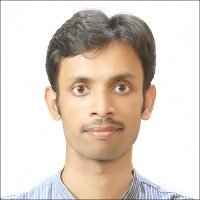
Dr. Swarup Roy currently working as an Assistant Professor at the Department of Food Technology and Nutrition, Lovely Professional University, India. Dr. Roy previously worked as an Assistant Professor at Shoolini University, India (2022-2023). He worked as a postdoctoral researcher at the BioNanocomposite Research Center, Kyung Hee University, Seoul, and Inha University, Incheon, South Korea (2017-2021). He also worked as a research associate at IIT Indore (2016-2017). Dr. Roy completed his PhD degree as a DST INSPIRE Fellow from University of Kalyani, India (2011-2016). His current research work is focused on the preparation and application of biopolymer-based functional composite material for active and smart packaging applications. Dr. Roy has published over 135 peer-reviewed research articles including research papers, reviews, editorials and book chapters. He also served as Editorial board member of Packaging technology of Science, Materials, International Journal of Biomaterials, International Journal of Food Science. Dr. Roy is also editing special issues for the International Journal of Molecular Science, Polymers, Coatings. Dr. Roy’s current H-index is 44, i10 index 91 and he has more than 5200 citations.

Professor Tiwari is a Principal Research Officer at Teagasc – Irish Agriculture and Food Development Authority and Professor at UCD School of Biosystems Engineering. Professor Tiwari have an internationally recognised reputation for food engineering research as evidenced by his Highly Cited Researcher designation continuously since 2018 by Clarivates (web of Science). Prof Tiwari have developed, funded and led ab initio my Advanced Food Processing Technologies Research Group to become a strong multidisciplinary research group with an excellent international track record in delivering high quality research and innovation metrics, including patents and technology transfer. He has published over 250 high impact peer reviewed journal papers, presented over 200 national and international events including over 200 as invited speaker, keynote lectures, co-edited 14 books and currently he is a book series editor for IFST Advances in Food Science book series. His core area of research is in the area of sustainable innovative technologies to mitigate emerging food production and processing challenges. He leads a team of over 25 researchers including postdoctoral researchers/Research officers and PhDs in the area of sustainable food processing and preservation technologies. To date Prof Tiwari, have supervised >50 research theses to completion as Principal Supervisor/Co-supervisor. Supervised >30 postdoctoral/contract researchers. His research group has hosted Visiting Faculty/researchers from EU and non-EU (UK, Brazil, France, Italy, Serbia and USA). His editorial responsibilities include Editor LWT – Food Science and Technology and Editor – Food Chemistry and Editorial board member of Ultrasonics Sonochemistry, Food Engineering Reviews. He is also fellow of Royal Society of Chemistry (FRSC), Fellow Institute of Food Science and Technology (FIFST, UK), Fellow of Association of Food Scientists and Technologists (FAFSTI, India).
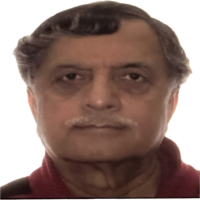
Dr. Hosahalli Ramaswamy is a Professor in the Department of Food Science at McGill University in Montreal, Canada with teaching and research responsibilities in the areas of Food Processing and Post Harvest Technology. He obtained his MSc and Ph.D form the University of British Columbia, Vancouver, in addition to an MSc (Food Technology) from Central Food Technological Institute, Mysore, India. In his research activities, he has explored the use of conventional thermal processing as well as thin profile, rotational, microwave, RF, ohmic, aseptic processing, microwave-osmotic dehydration. In the area of non-thermal processing and minimal processing, his research focus has been application of high pressure processing of food systems. He has participated in several international projects involving India, Ghana and Ethiopia.
Dr. Ramaswamy has been a professional member of several organizations like CIFST, IFT, IFTPS, ASABE, AFST and CSBE for more than 35 years. He has been an Associate Editor of Transactions of ASAE (ASAE) and Journal of Food Science, and Editor of Journal Food Engineering (Elsevier). Currently he is the Editor in Chief of Journal of Applied Food Research and Scientific Editor of Journal of Food Science. He has been an invited speaker at many international conferences and symposia.
He is the recipient of many awards: W. J. Eva Award by the Canadian Institute of Food Science and Technology (CIFST), John Clark Award of CSAE, Fellow of the AFST (India), President’s Award of CIFST, Fellow of Canadian Society of Bioengineering, Merit Pin & Marvin Tung Award (highest) of Institute for Thermal Processing Specialists (IFTPS), Fellow of IFT, IUFoST, NAAS (India). He is a Fellow of the Royal Society of Canada and the recipient of Life Time Achievement Award of the International Association of Food Engineers (IAEF, ICEF). He has published 450 scientific papers peer-reviewed international journals, has supervised over 80 graduate students and made over 500 presentations at international conventions

Mala Ganiger is R&D lead for Minn-Dak Growers Ltd., based in Grand Forks, North Dakota, USA.This company specializes in buckwheat and mustard milling in the food-based industry. Her responsibilities revolve around buckwheat breeding projects, focusing on improving the nutritional and food safety aspects of buckwheat. Currently she is also pursuing doctoralstudiesin the Department of Plant Sciences at North Dakota State University, Fargo, ND. Her current research focuses on conducting a genome-wide association study (GWAS) to understand the genetic factors underlying the seed coat color in common buckwheat (Fagopyrum esculentum). Mala earned her M.S. in Plant Pathology at Louisiana State University, where she conducted a proteomics-based investigation of the host-fungus interaction between soybean and Phakopsorapachyrhizi using recombinant inbred line (RILs) derived sibling lines. She also holds master’s in plant biotechnologyandbachelor’s in Agricultural Sciencesfrom the University of Agricultural Sciences, Dharwad, India.
Mala is a member of several professional societies and has contributed to various committees and initiatives within these organizations.She has also been actively involved in various leadership roles within the academic community, such as serving as the Chair of the ACS Graduate Leadership Conference and the Vice-Chair of the Extension and Education Section at the American Society of Agronomy.Mala has received numerous awards and honors, including the prestigious 2023 Future Leaders in Science recognition for her active engagement in science advocacy during the Congressional Visit Day organized by the American Society of Agronomy (ASA), Soil Science Society of America (SSSA), and Crop Science Society of America (CSSA).
Throughout her career, Mala has actively contributed to the academic community through her teaching roles, mentoring of students, and participation in various conferences and workshops. Her work has been recognized through numerous peer-reviewed publications and poster presentations, showcasing her expertise in plant pathology, genomics, proteomics, and bioinformatics.

Name : Ms. Lois Ndiba
Education:
MSc Food Safety and Quality - UON
BSc Food Science & Technology – JKUAT
Diploma Quality Control and ISO 9000 – AIIMAS (India)
Expertise:
Lead Auditor Quality Management systems
Lead Auditor Food Safety Management Systems
Trainer of trainers - food safety and quality management standards
Food value chains development
Policy and standards development
Experience:
Employment – 9 years
Training and advisory – 16 years
Lead Auditor (food safety management systems) – 5 years
I, Deep Narayan Yadav having doctorate degree in Food Technology, presently working as Principal Scientist & Head Dairy Technology Division at ICAR-NDRI, Karnal. I had 20 years of service experiences in the field of Agricultural Research and served at multiple organizations i.e., Bundelkhand University, Jhansi; DRDO-DFRL, Mysuru, and ICAR-CIPHET, Ludhiana.
Major research contribution includes improvisation of technologies for effective utilization of oilseeds meals/cakes. Specifically, oilseeds cakes like ground nut meal to develop various dairy analogues products (flavoured beverages, curd, tofu/paneer etc). Also developed a unique patented (National & USA) microbial method for production of protein isolates/concentrates from different commercial de-oiled cakes/meals. Design (patented) & established indigenous protein isolates pilot plant for the same. Contributed in development of a continuous microwave-based disinfestation system for wheat, rice and optimized the process for stabilization of whole wheat flour (patented). Developed a process for stabilization of pearl millet flour and grits and used it to develop nutritionally dense extruded snacks. Most of the developed technologies has been transferred to entrepreneurs.
Handled 12 Institute funded research projects and 06 externally funded projects as PI/Co-PIs from NAIP/NASF/DRDO/Industry/Department of Consumer Affairs worth about Rs.12.00 crores related to cereals, pulses, and oilseeds. Published 80 research papers in national and international journals with H-index of 28, 15 book chapters, three patents (granted), and many popular articles and delivered about 50 invited lectures in various programmes related to post-harvest processing & value addition of agricultural commodities.
Also contributed as member of various review committees such QRT (2007-12, AICRP on PHT), QRT (2012-2017, AICRP on PHET, PET, ICAR-CIPHET, CRPs on Secondary Agriculture, Health Foods), Member Secretary Institute Research Council, Member (last 5 years) Scientific Panel on Cereals, Pulses & Legumes, FSSAI, New Delhi, Chairman-Oils and Oilseeds Sectional Committee (FAD-13), and Member Foodgrains, Allied Products and Other Agricultural Produce Sectional Committee (FAD 16), BIS, New Delhi. Apart, inspected the progress of 12 Food testing Laboratories as an expert for funding from MoFPI. Contributing as NABL Assessor for Food Testing Laboratories as well as appraisal of proposals under PMFME Schemes.
Recognitions:

Prof. Dr. Soottawat Benjakul is a professor in Food Science and Technology, International Center of Excellence in Seafood Science and innovation (ICE-SSI), Faculty of Agro-Industry, Prince of Songkla University (PSU), Hat Yai, Songkhla, Thailand. He received his Ph.D. (Food Science and Technology) from Oregon State University, USA in 1997 under the support from the Fulbright scholarship. After graduation, he joined the Department of Food Technology (PSU). He has focused his research on seafood science and technology. His major fields of interest are the seafood quality as well as the valorization of fish processing byproducts. He is interested in tackling the problem associated with seafood quality loss. He has currently focused his research on non-thermal processes and natural additives for shelf-life extension of seafood and products. Moreover, he has emphasized his research in utilization of seafood processing byproducts via conversion to value-added products, especially functional ingredients or nutraceuticals. He has received the research grants from national and international agencies. Within approximately 25 years of his career path, he has been named as several prestigious award recipients. He has published more than1,000research and review articles in peer-review international journal indexed by Scopus with H-index of 100 and his citation is higher than 41,500.He was also named as the winner of the invention awards related with the development of value-added products based on fish processing leftover from the international exhibition of invention. He hasbeen listed as the top 1% of researchers for most cited documents in the field of Agricultural Sciences by Clarivate Analytics for 8 consecutive years. He has established ‘International Center of Excellence in Seafood Science and Innovation, ICE-SSI’ at PSU to strengthen the seafood research and extension in Thailand and southeast Asia. He has served as the reviewer for a number of journals as well as research proposals submitted to several granting agencies. He was appointed as editorial board for Journal of Food Biochemistry since 2000, for Fisheries Science since 2015, for Journal of Food Science since 2016, for Science Asia since 2020 and for Foods since 2021. He has also served as the associate editor for International Aquatic Research since 2010.
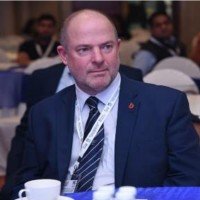
Dr. Simon Hird has worked for Waters since 2014 as a Principal Scientist, in the Food and Environmental Market area and now as a Strategic Analyst in Waters’ new Testing and Laboratory Service business unit. Simon contributes to scientific projects, is involved in the commercialisation of new technologies, and provides advice, training, and context to various parts of the Waters organisation and to customers globally. Simon instructs on internationally recognised training courses, such as SARAF, GFoRSS and for AOAC India section. Simon continues to be invited to present at international conferences and has 24 peer-reviewed publications, including one of the most downloaded Trends in Analytical Chemistry articles, “Liquid chromatography-mass spectrometry for the determination of chemical contaminants in food”. Prior to joining Waters, Simon spent almost 20 years at a government laboratory in the UK (now called Fera Science), where he had various roles associated with residues testing and food authenticity before leading an LC-MS/MS team responsible for determination of residues and contaminants in food and environmental samples.